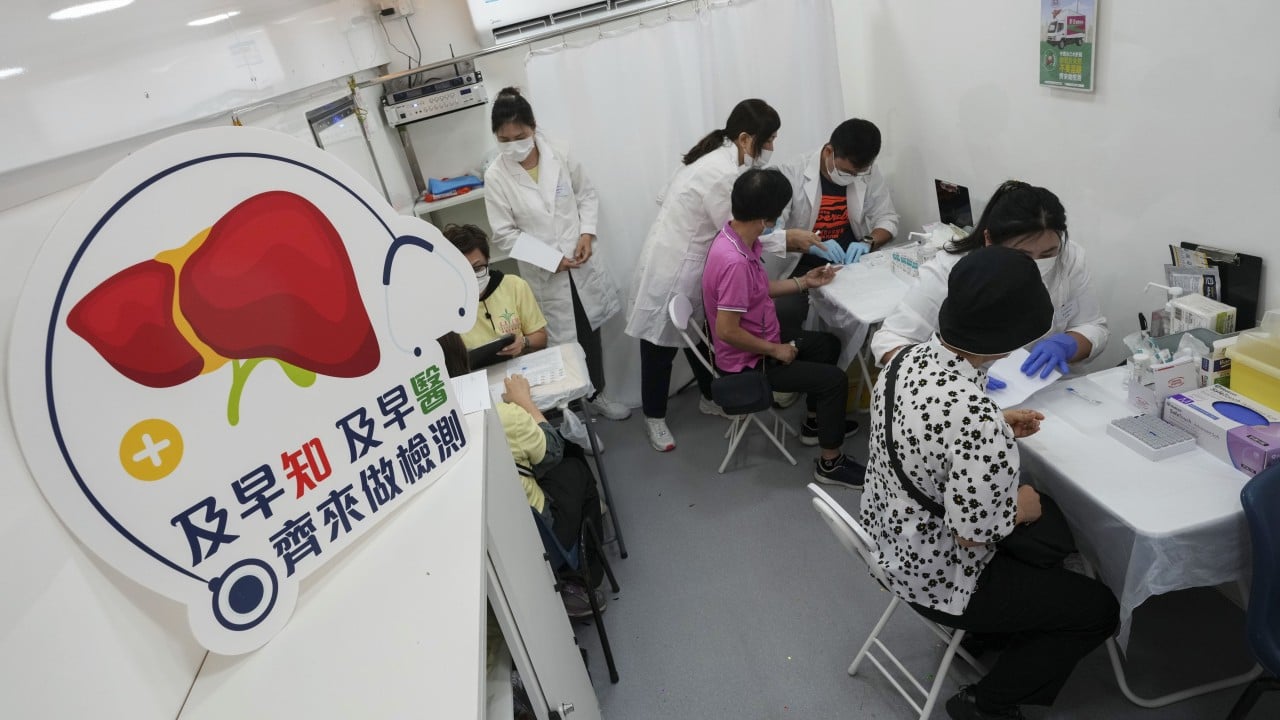Hong Kong health authorities have appealed to people with chronic hepatitis B to get regular check-ups as part of Sunday’s World Hepatitis Day and warned that many with the condition are unaware of, or ignore, their medical needs.
“At least one in every 20 people in Hong Kong is infected with hepatitis – this is a very serious problem,” Secretary for Health Lo Chung-mau said.
“We would like to stress that hepatitis is preventable, and, even if you are infected, there is no need to worry as long as you are detected early and receive regular follow-ups, which would prevent serious diseases such as cirrhosis and liver cancer.”
Chronic hepatitis B is a lifelong infection that may remain asymptomatic for decades until the liver has suffered severe damage.
About 15 to 40 per cent of untreated people may develop life-threatening diseases such as cirrhosis and liver cancer.
Liver cancer was the third-biggest cause of cancer deaths in the city in 2022 and claimed 1,412 lives in Hong Kong.
“If you are unsure if you are infected, you should consult family doctors for testing as soon as possible and those infected should have regular examinations to ensure early detection [of liver disease] and treatment,” Lo said.
He added people born in the city before the 1980s, or not born in Hong Kong, would be at higher risk because the city only introduced universal vaccination for newborns in 1988.

Mainland China started to offer free hepatitis vaccines for babies in 2002.
Other high-risk groups that should be tested are family members and sexual partners of people infected with the virus.
A survey published by the Department of Health last year found 5.6 per cent, or 410,000 people in the city had the disease, but nearly 40 per cent were not aware of their condition and about 70 per cent did not receive any medical follow-ups.
The figures showed that a substantial proportion of people with chronic hepatitis B infection were unaware of, or attached little importance to, the condition.
Ken Wong Lung-fai, the chairman of the Hong Kong Liver Transplant Patients’ Association, said the trend towards delaying treatment was “worrying”, and he appealed for more public education on hepatitis B.
“Most patients that came into contact with us have already developed liver failure, liver cancer or severe cirrhosis when symptoms emerged and needed a liver transplant as soon as possible,” he said.
“Most of their conditions were caused by hepatitis B viral infection.”
The risk of developing cirrhosis or liver cancer can be reduced through the use of prescription oral antiviral medicine, which can inhibit virus replication.
The foundation marked the global education day with the launch of a mobile hepatitis testing service, expected to screen at least 100,000 people by 2030.
Mobile clinic staff will do health surveys, rapid blood tests for hepatitis B and C and also carry out health promotion and make referrals.
Check-ups will take about five minutes and the results will be sent to people’s mobile phones.
The mobile clinic will visit Tsuen Wan district in mid-August and then tour the city.
People can check the schedule on the foundation’s website.
The World Health Organization has set a global goal of a 90 per cent diagnostic rate by 2030 with a view to the eventual elimination of the disease.


